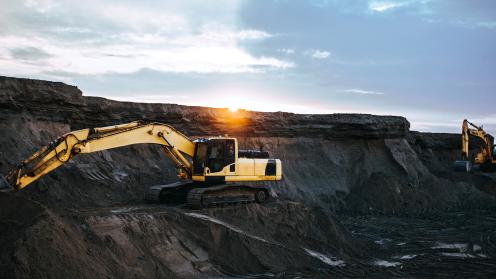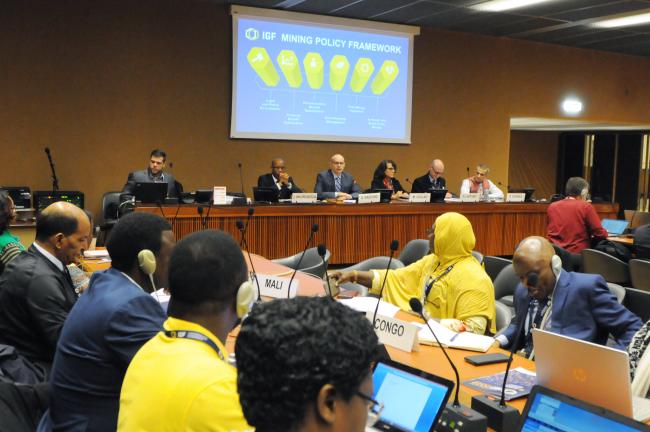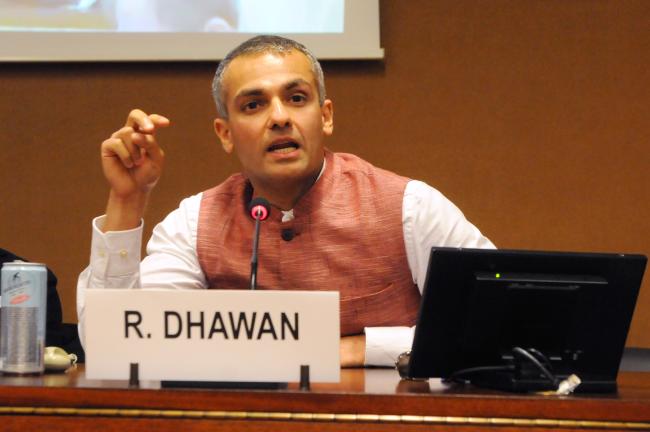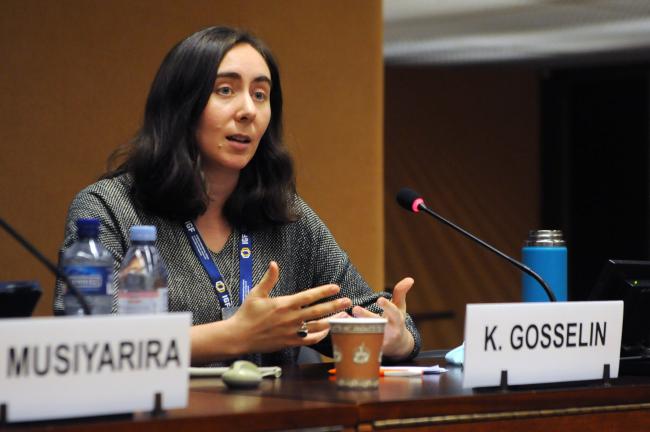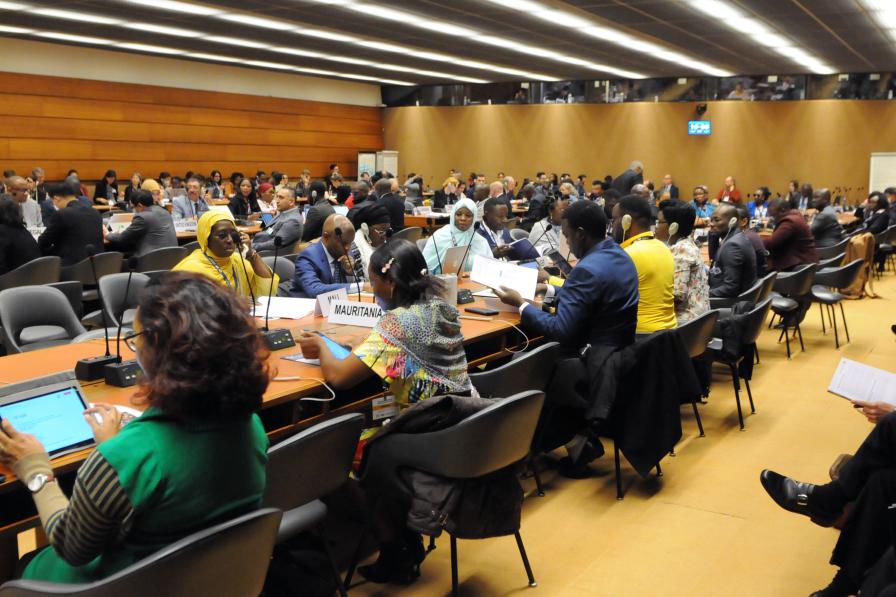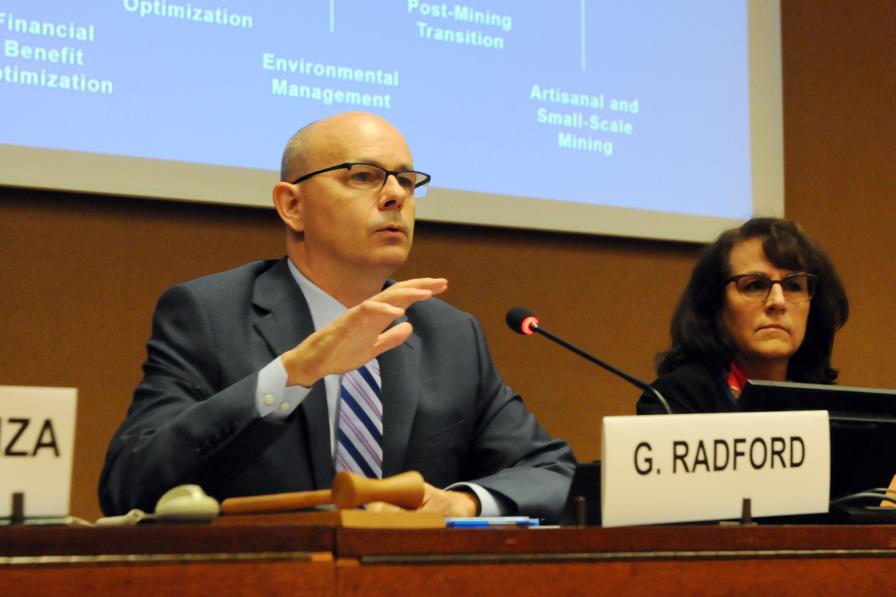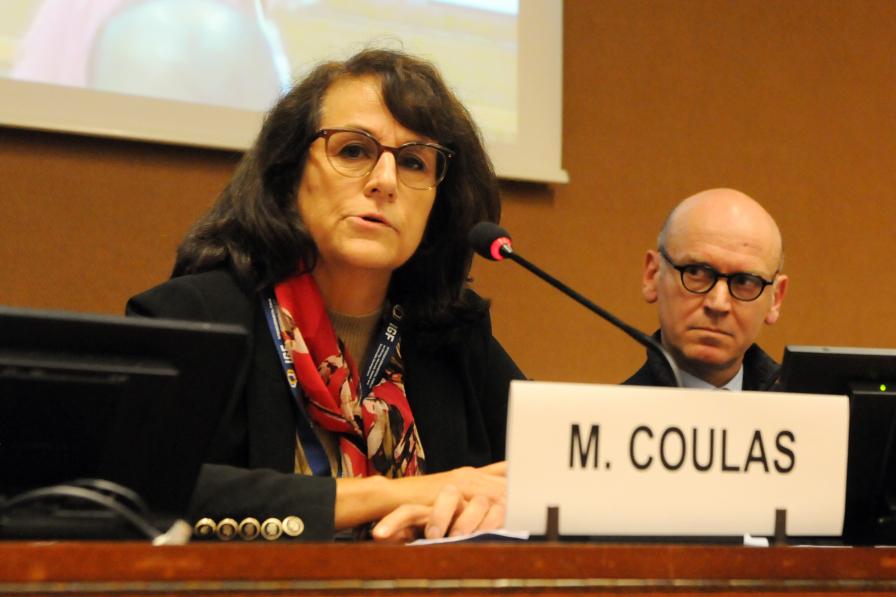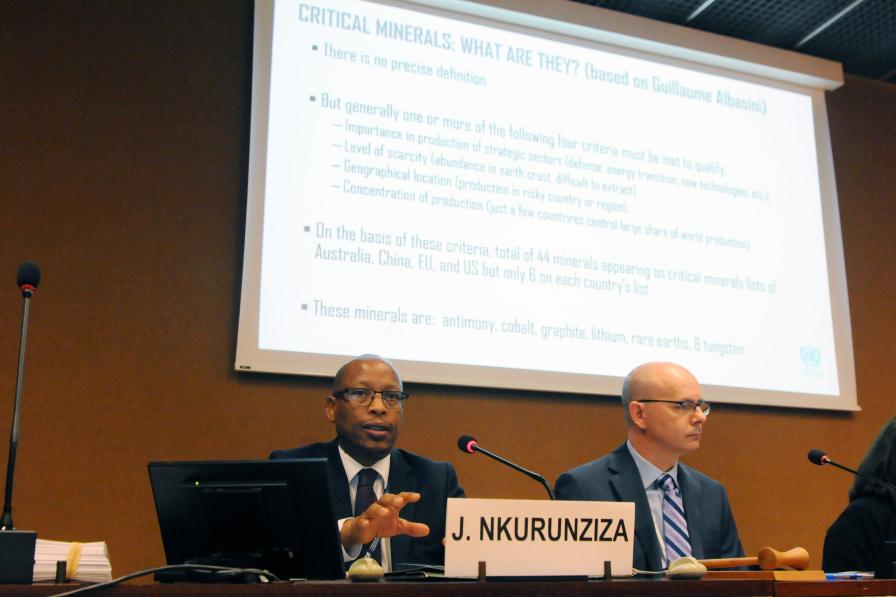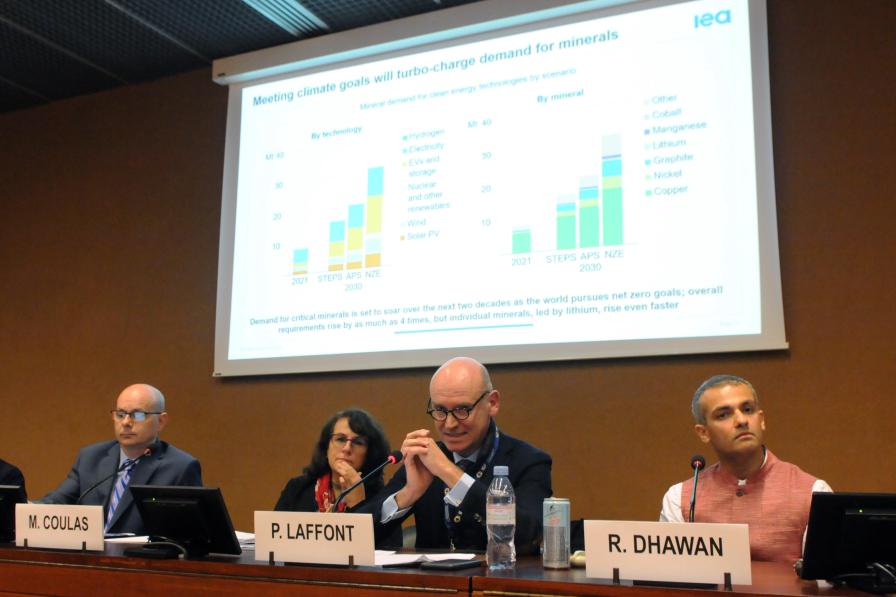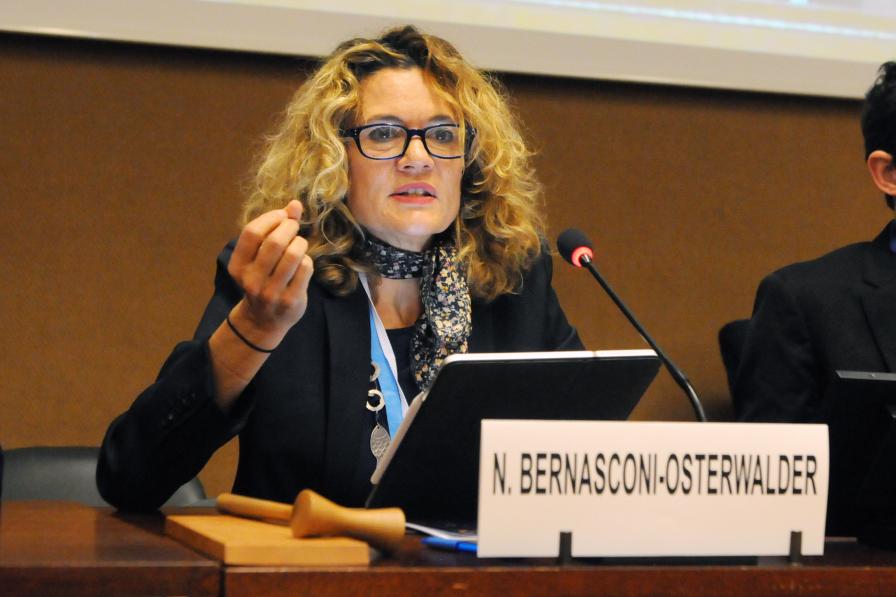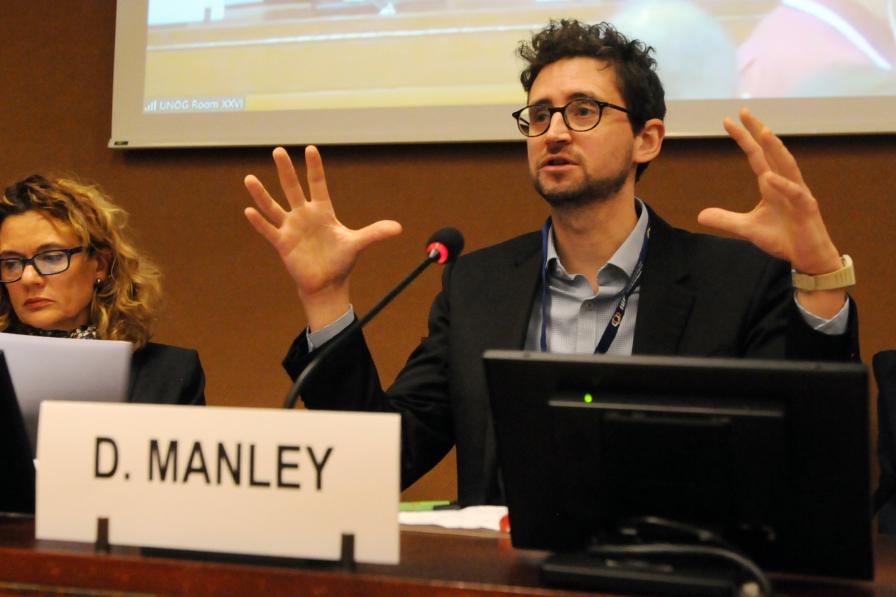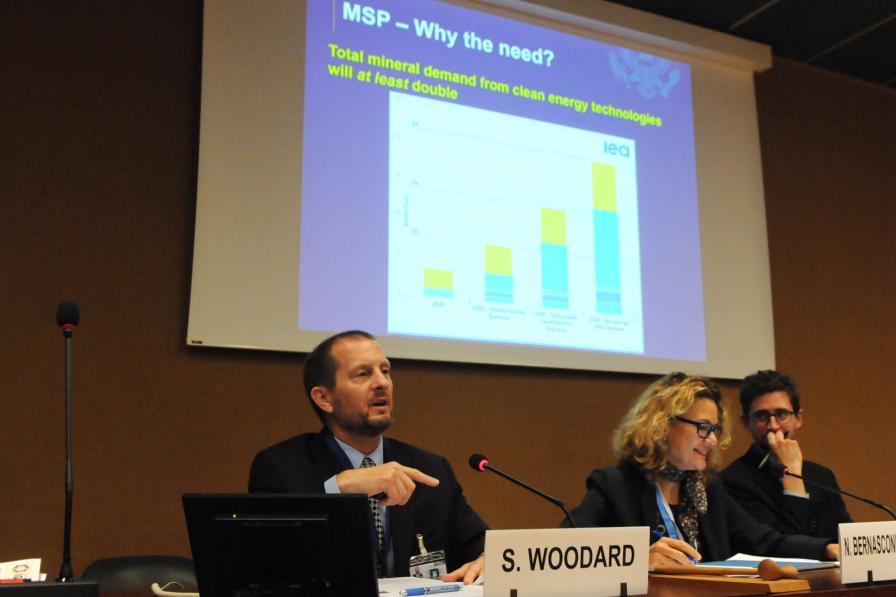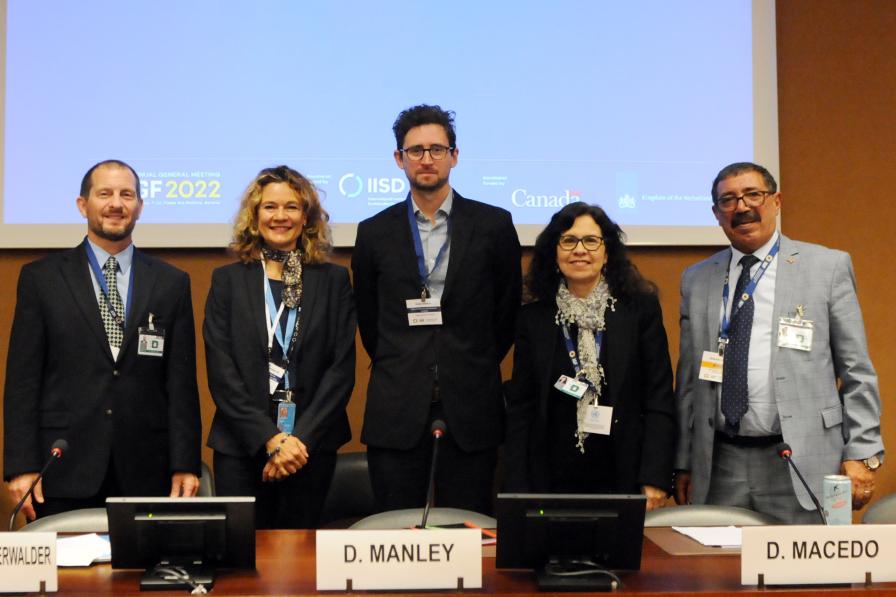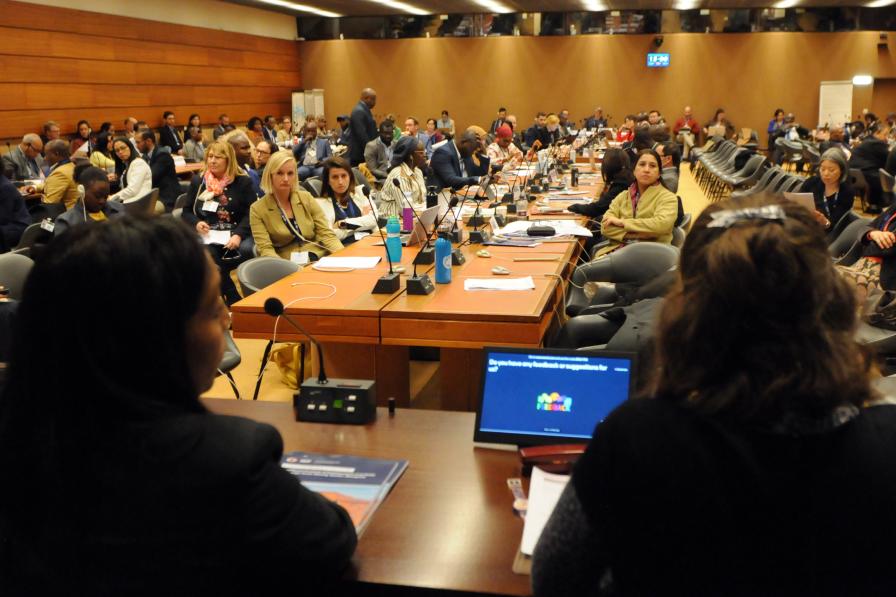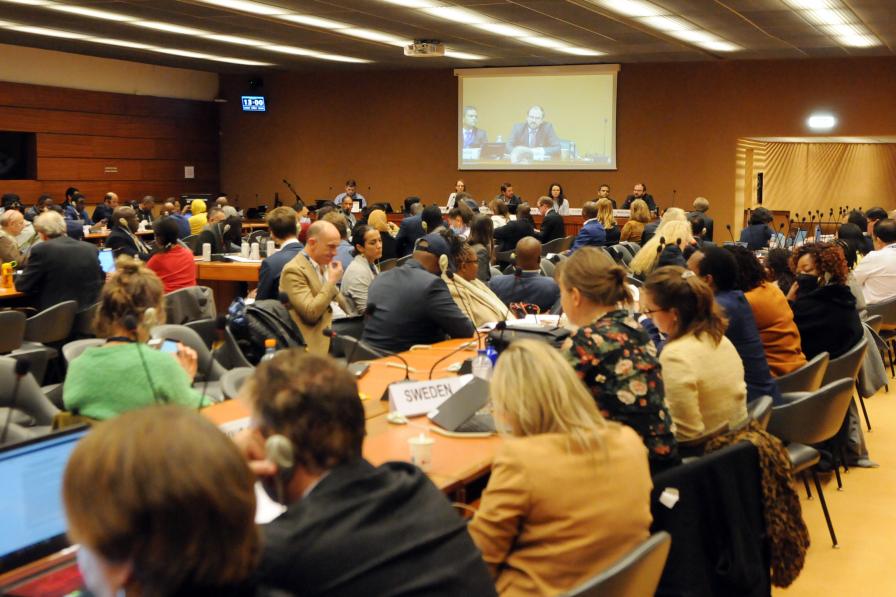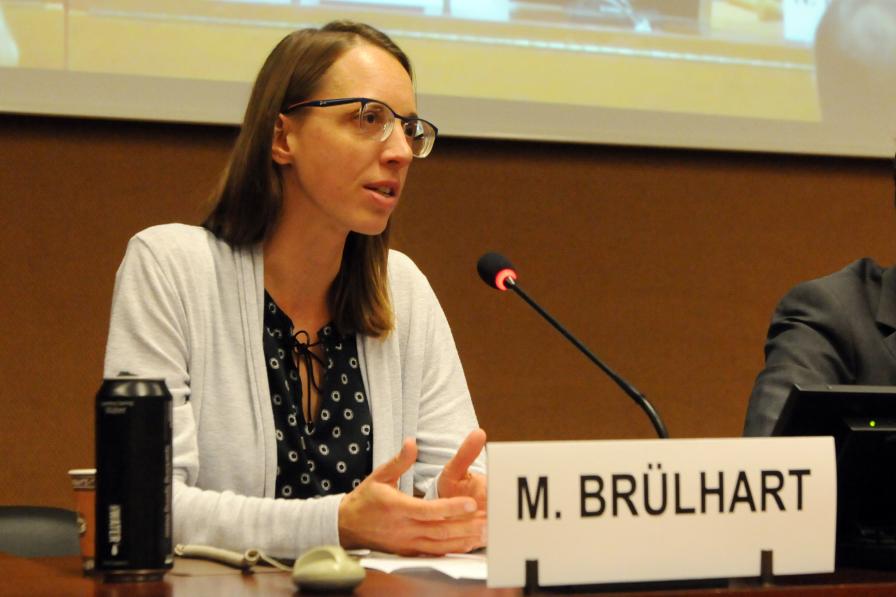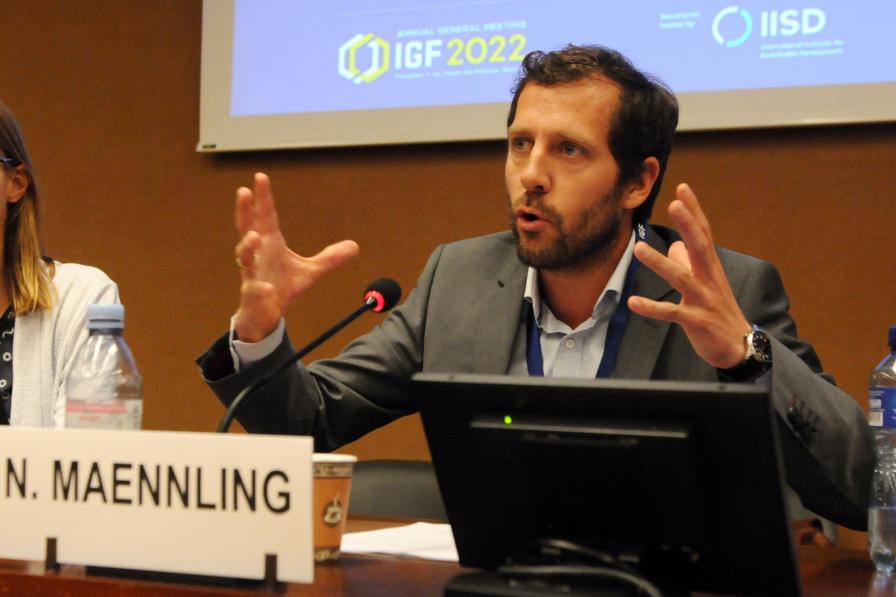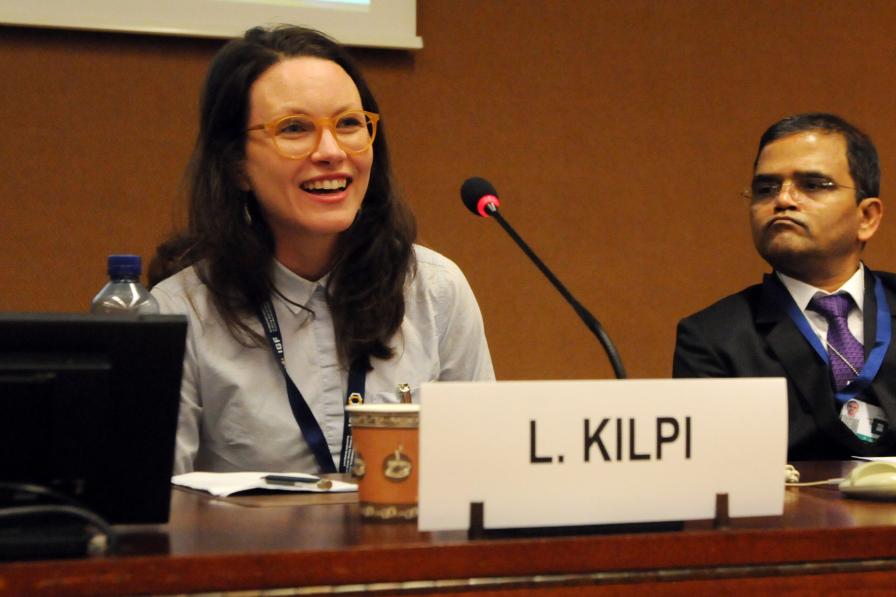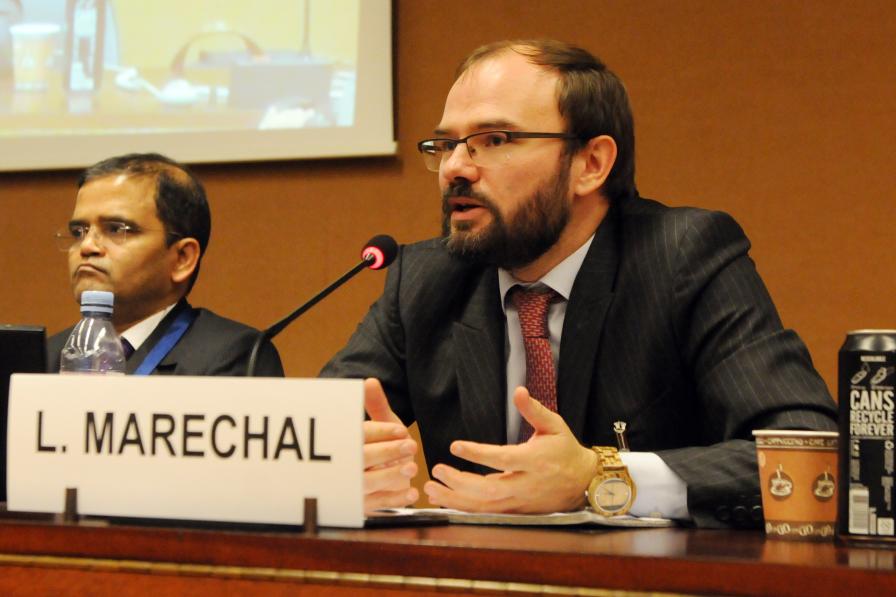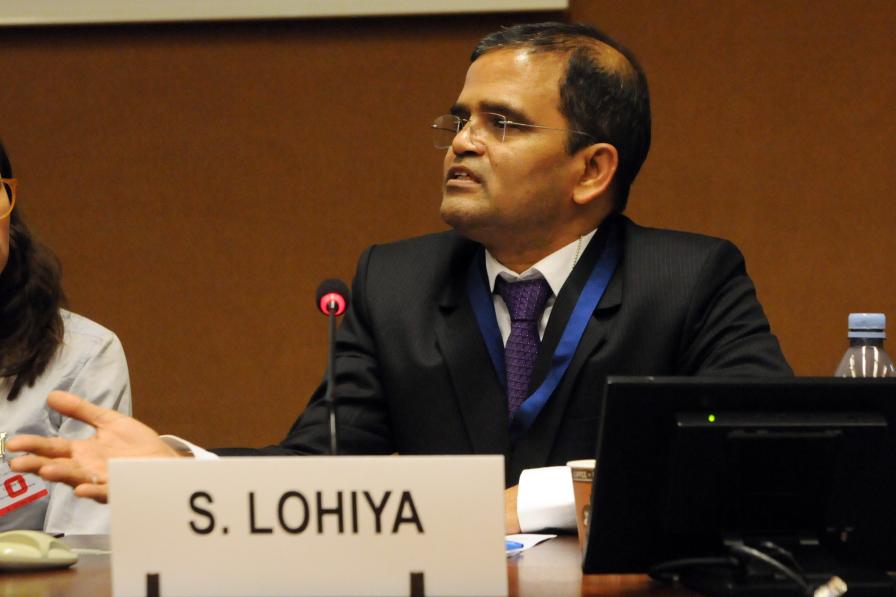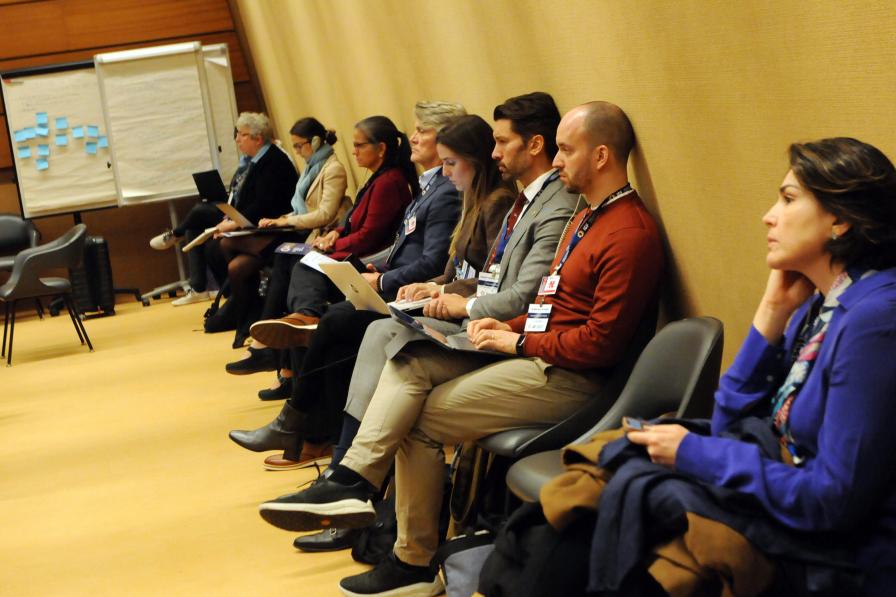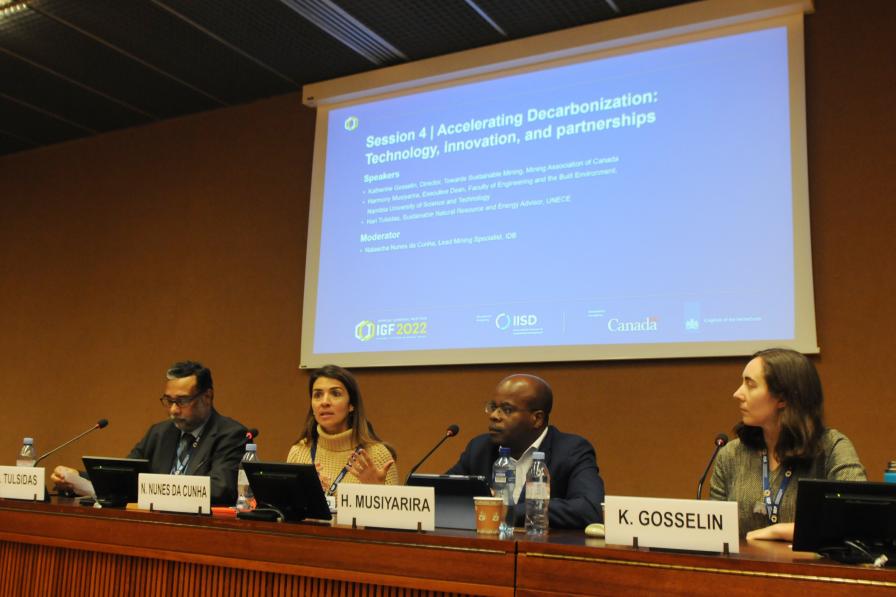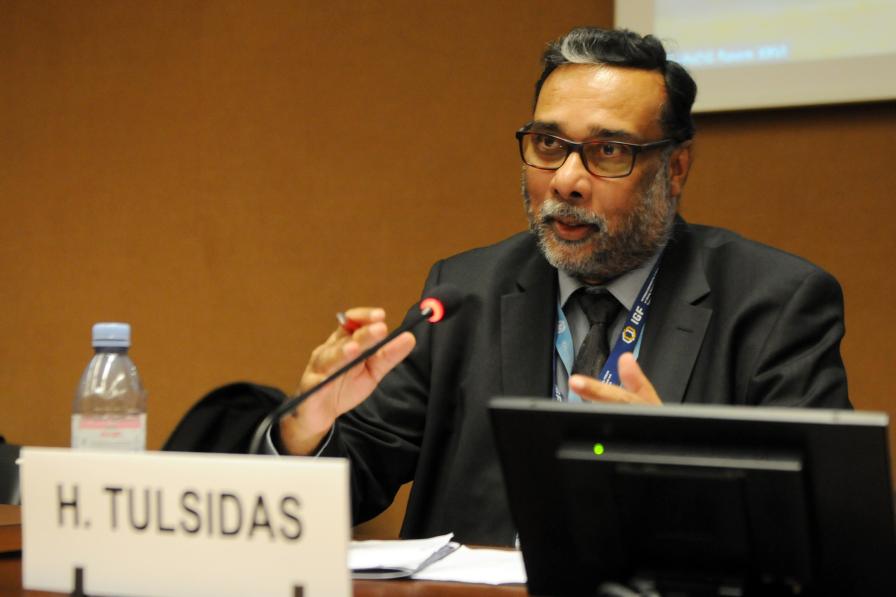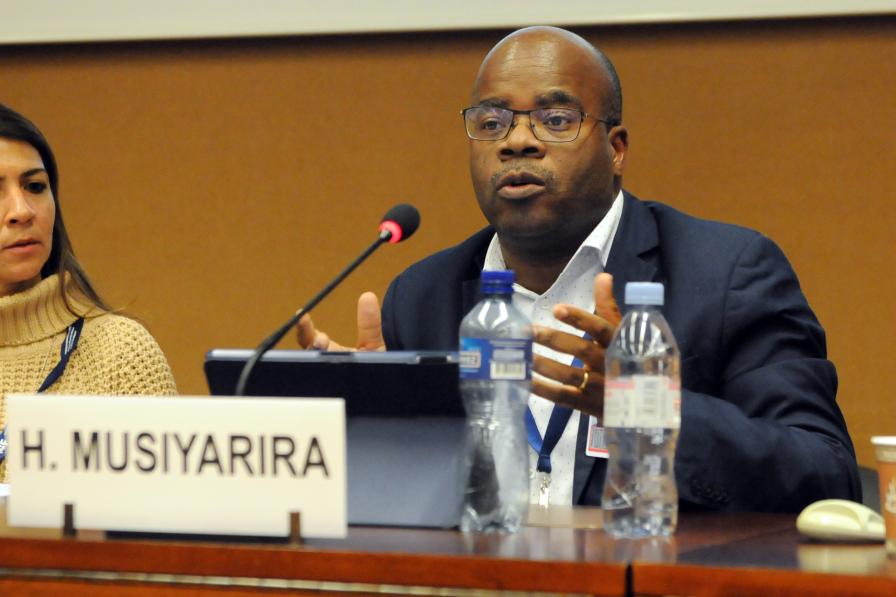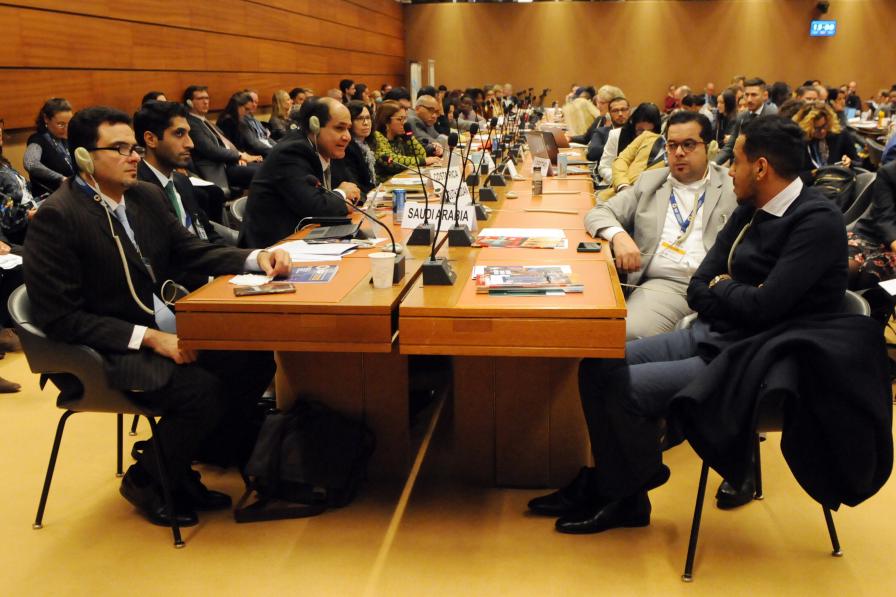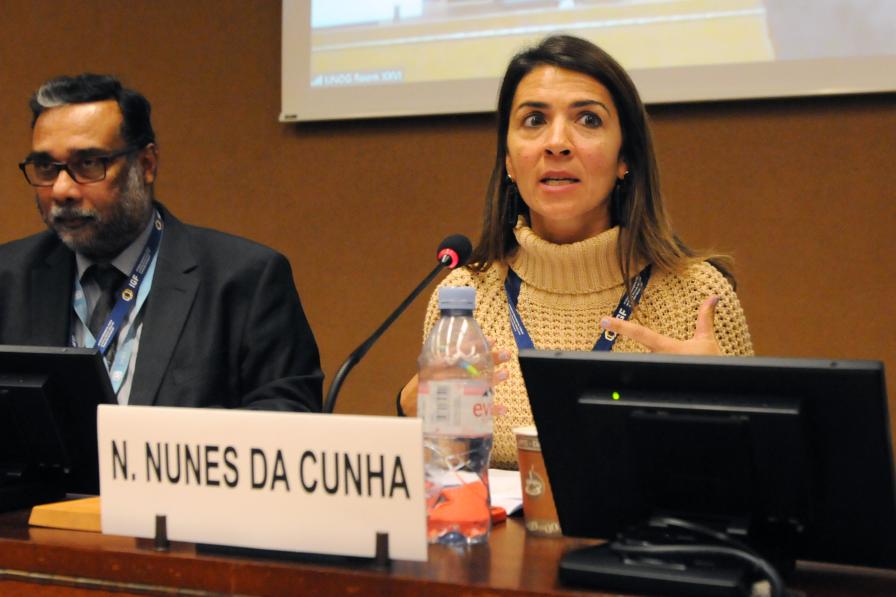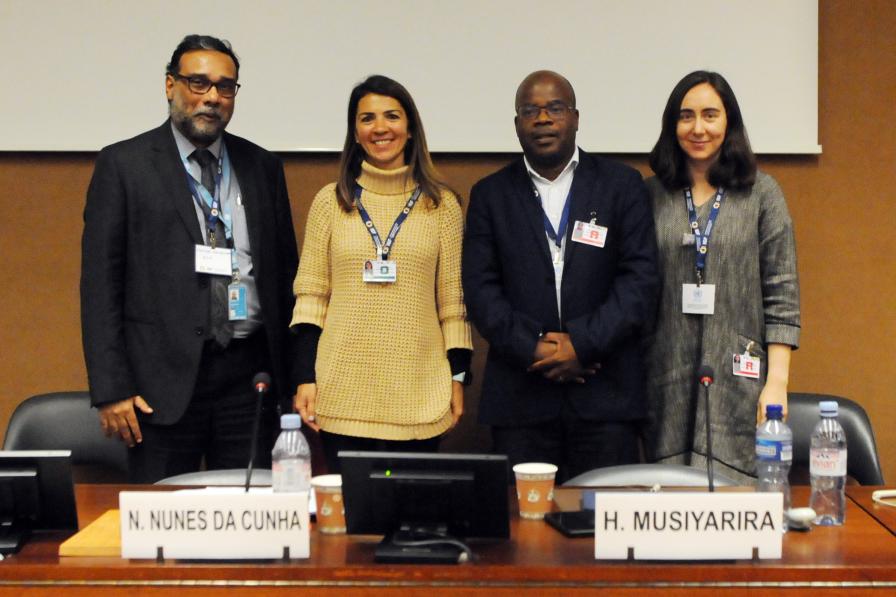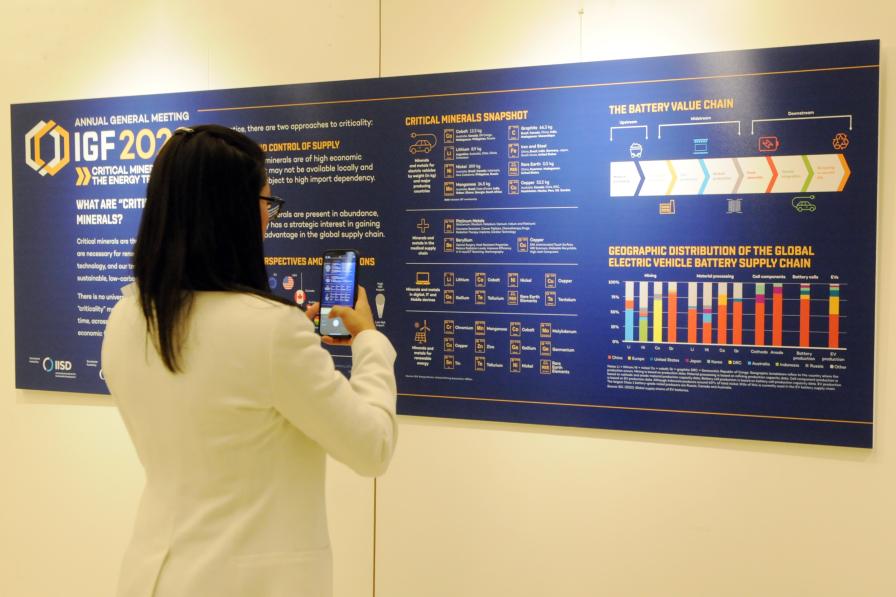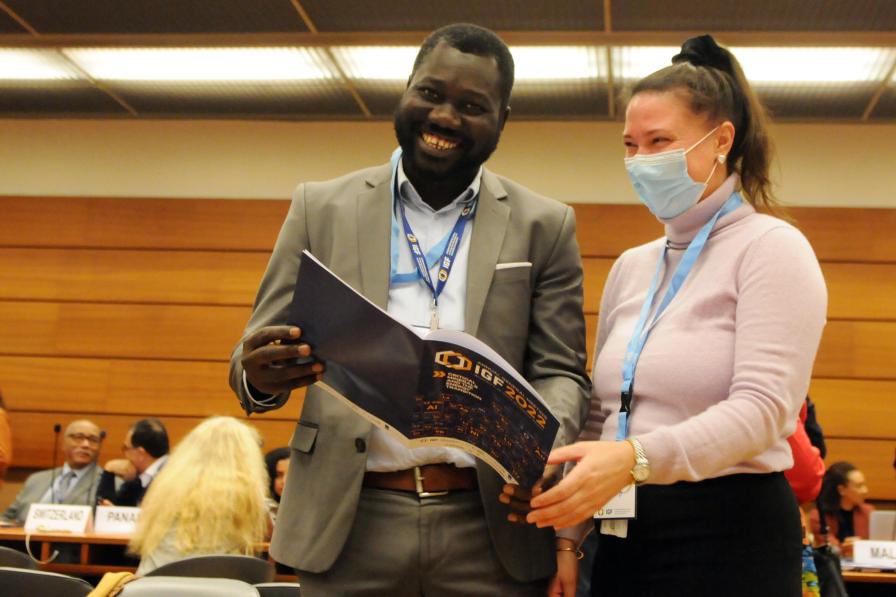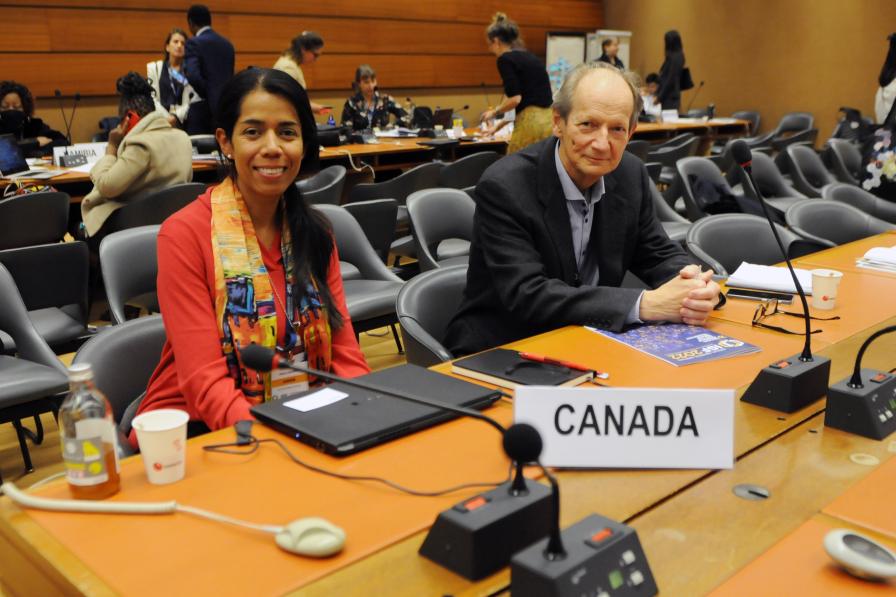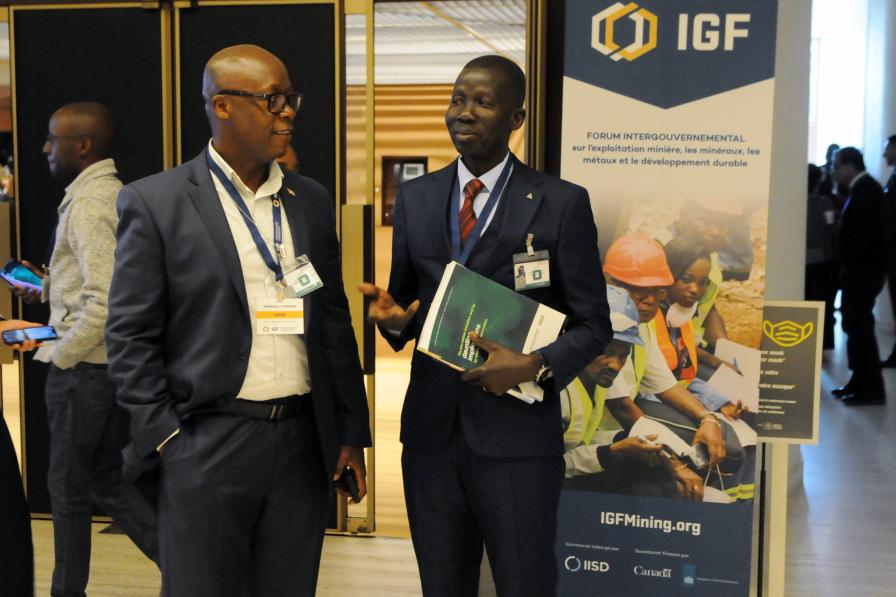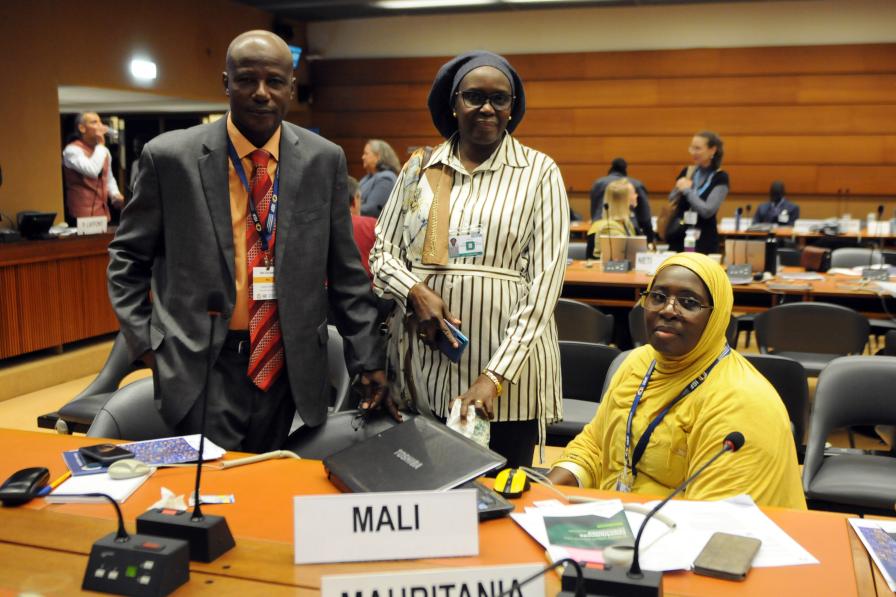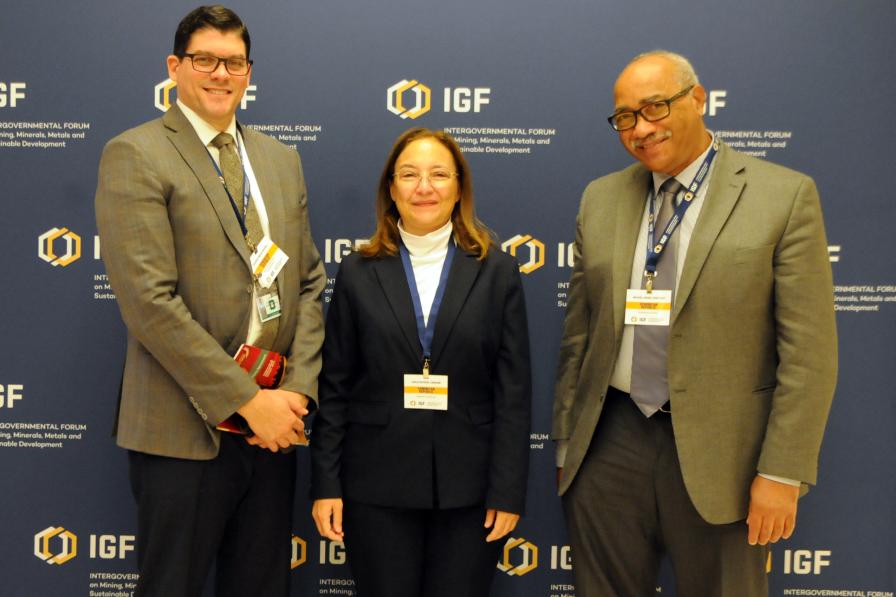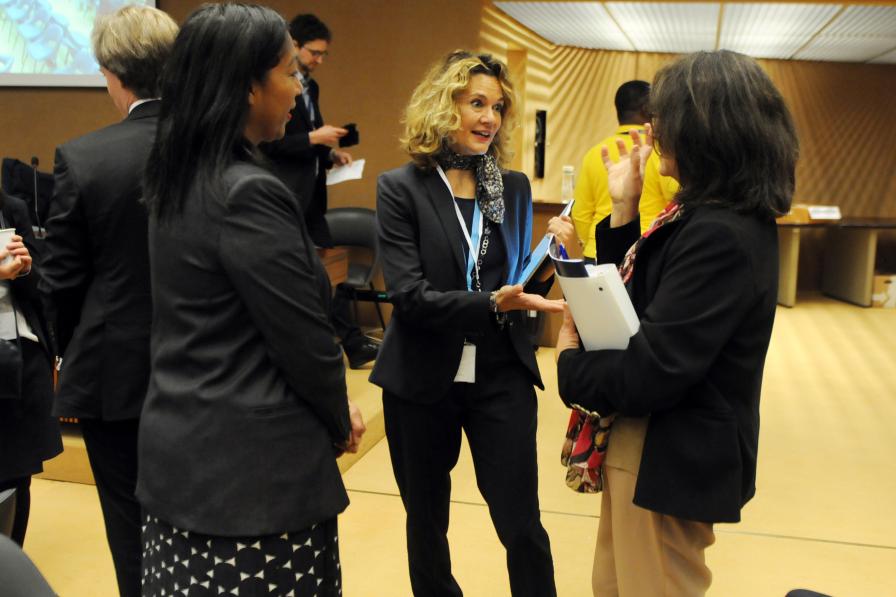The Intergovernmental Forum on Mining, Minerals, Metals and Sustainable Development (IGF) opened its 18th Annual General Meeting (AGM) on the theme of “Critical Minerals and the Energy Transition” on Tuesday in Geneva. IGF Secretariat Director, Greg Radford, and the Chair of the IGF Executive Committee, Maureen Coulas, offered welcoming remarks, followed by scene setting provided by speakers from the UN Conference on Trade and Development (UNCTAD), the International Energy Agency (IEA), and the International Council on Mining and Metals (ICMM). Subsequent thematic sessions throughout the day addressed government readiness for suitable policy and regulatory frameworks that will meet the demand for critical minerals, the role of environmental, social and governance (ESG) standards in driving change toward responsible mining, and decarbonization pathways to a low-carbon future for the mining sector.
Setting the scene, Janvier Nkurunziza, UNCTAD, discussed “green industrial policy” options that commodity-dependent developing countries (CDDCs) should consider to fully benefit from the growing demand for critical minerals. IEA Legal Counsel Pascal Laffont stressed the need for better integrated supply chains, improved international collaboration, and environmental and social impacts reduced through tracking and tracing instruments. ICMM Chief Executive Officer Rohitesh Dhawan outlined mining industry commitments on issues such as biodiversity loss, decarbonization, and tailings management, and urged governments to do their part, for example by incorporating into law the Global Industry Standard on Tailings Management.
On government readiness, David Manley, Natural Resource Governance Institute (NRGI), urged Africa to: expand “no go” zones; better evaluate below-ground risks through better geological data; and maximize the value from mining. Dione Macedo, Ministry of Mines and Energy, Brazil, discussed the recent evolution of Brazilian mining policy, including the new 2050 National Mining Plan. Abdelaâli Lefdaoui, Ministry of Energy Transition and Sustainable Development, Morocco, discussed his country’s proactive energy strategy which includes a legal framework and innovation for renewable energy, energy efficiency and regional integration. Scott Woodard, US State Department, discussed the multilateral Minerals Security Partnership launched in June 2022 with a view to bolstering critical mineral supply chains essential for the clean energy transition.
Regarding ESG and responsible mining, Michèle Brülhart, Executive Director, The Copper Mark, stressed the need for data-driven, open and transparent discussions around the impacts of copper. Sanjay Lohiya, Ministry of Mines, India, discussed the various bodies working on ESG standards relevant for mining in his country, and said India welcomes voluntary industry standards. Louis Maréchal, Organisation for Economic Co-operation and Development (OECD), discussed current OECD concerns about companies “running away” from risks that they have identified in their supply chains rather than mitigating them. Lyydia Kilpi, Extractive Industries Transparency Initiative (EITI), discussed ways EITI and transparency have prompted improved governance in the mining sector of many countries.
In the session on accelerating decarbonization, Katherine Gosselin, Mining Association of Canada, discussed the Toward Sustainable Mining’s revised climate change protocol, for which companies must begin reporting publicly in 2023. Observing that we can be remembered for the problems we solve or the problems we cause, Harmony Musiyarira, Namibia University of Science and Technology, called for changing the narrative that mining companies are the “bad guys.” Hari Tulsidas, UN Economic Commission for Europe (UNECE), discussed UN work following up on the Secretary-General’s 2021 policy brief Transforming Extractive Industries for Sustainable Development on how the sector can become an engine to support a just transition to a net-zero, circular and inclusive global economy.
All ENB photos are free to use with attribution. For IGF AGM-18 please use: Photo by IISD/ENB | Diego Noguera
To receive free coverage of global environmental events delivered to your inbox, subscribe to the ENB Update newsletter.
Government Readiness for Modern Policy and Regulatory Frameworks
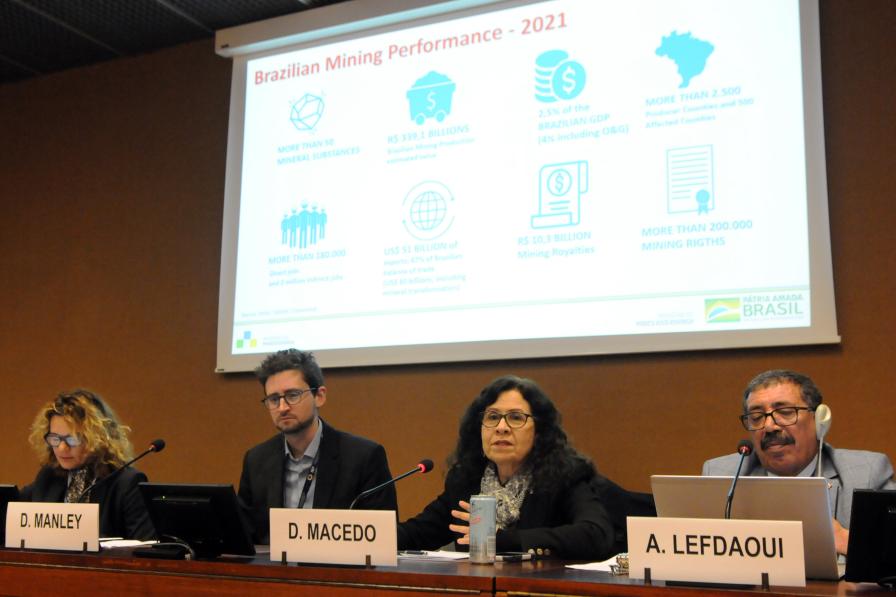
Dione Macedo, General Coordinator of Sustainable Development in Mining, Department of Geology, Mining, and Mineral Processing, Ministry of Mines and Energy, Brazil (second from right)
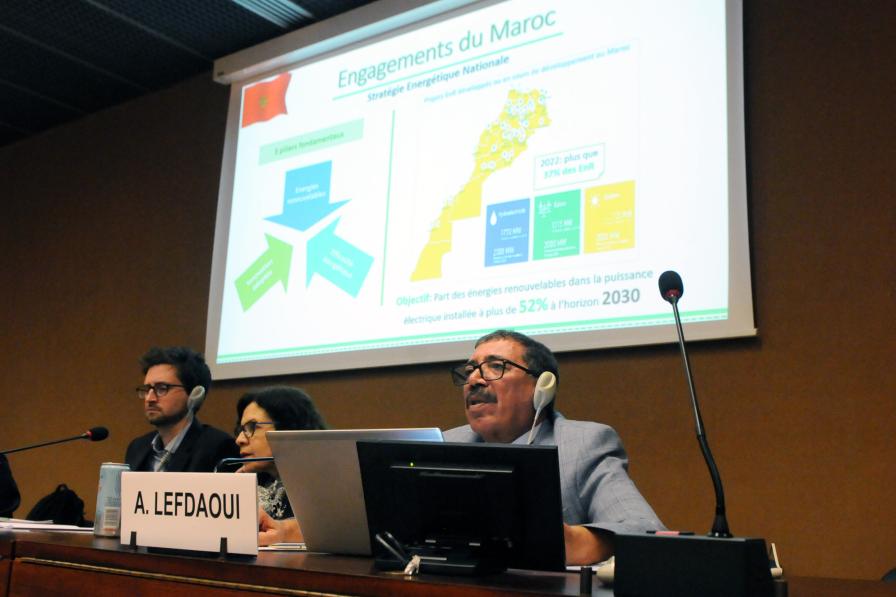
Abdelaâli Lefdaoui, Director, Mines and Hydrocarbons, Ministry of Energy Transition and Sustainable Development, Morocco
